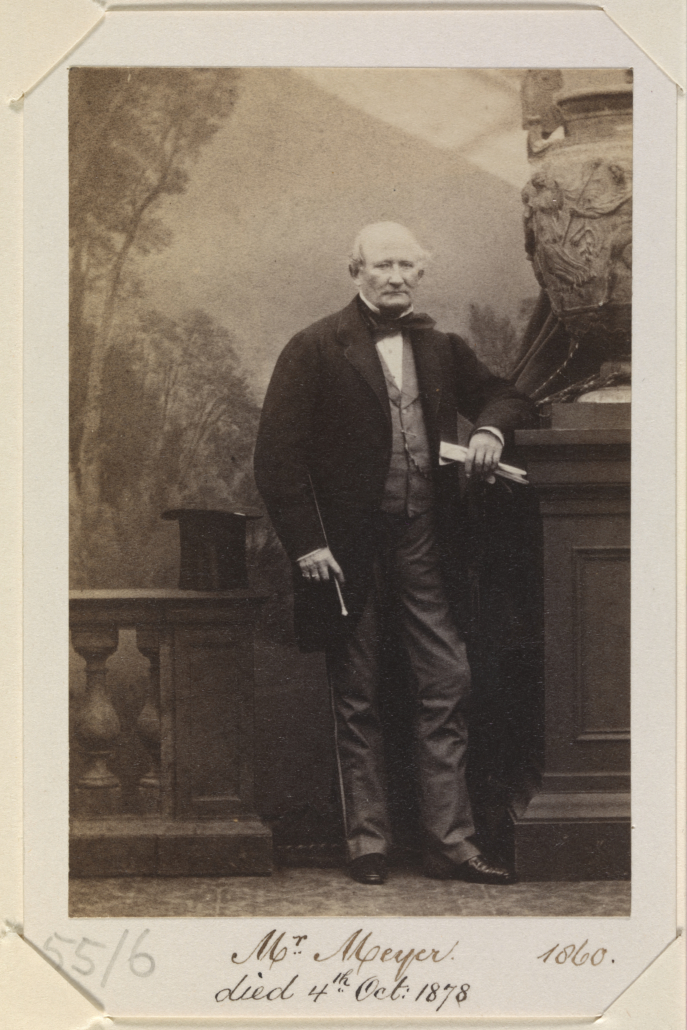William Meyer
In the English census of 1871 William Meyer (1810–1878) is listed with 61 years, Nelly Meyer with 58 years and their son Albert with 30 years. This indicates that the son Albert was born about 1841, one year after their arrival in England, which coincides with the 1841 census in which he is listed as 9 months old. Also listed there is a Maximilian as 4 years old. He is registered as “F” [Foreign], just like his parents. This suggests that William and Nelly got married in Germany and moved to England with their firstborn, Maximilian. They lived in 61 Watkins Terrace.
As Albert had mentioned in his letter to his grandmother, William Meyer came from Dresden and was known for his good work. Nevertheless, Albert wrote a message about the tasks of a stable master and how the work in the stable should be carried out. This letter is not dated but archived between two letters dated 16th July and 21st November 1840. Prince Albert started his letter as follows:
“The stable master is in charge of the stable, the stablemen and the horses. It is his responsibility that the grooms fulfil their duty and that the horses are properly taken care of &c. He rides the horses, and also cares for the saddles, harnesses, carriages &c., in sum, he leads the entire management of the stable department. …“
In April 1863, a good two years after the Prince’s death, Meyer wrote a letter to Queen Victoria explaining the number and type of horses, including a list clearly showing how each horse had been, and should be used. For example, Aja and Andrew were declared ladies’ horses.
Meyer retired in April 1871 after 31 years in the Royal service. He received a pension of £200 a year. Queen Victoria thanked him for his services in a personal letter:
“My best stable master Meyer. I cannot fail to tell you personally how much I appreciate, and how grateful I am, for your long and faithful service, devotion and diligence over 31 years. I know well how attached you have been to the beloved Prince and to me and our children, and therefore how painful it will be for you to resolve this relationship, which I am also quite sorry about….”
Meyer went back to Germany with his wife, but his children stayed in England, the country he regarded as his second home:
“… I would try in vain to find the full expression in words for my emotion, I can only say that, with my wife, I take with me the deepest and most faithful [gratitude] for Your Majesty and for the Royal House to our old homeland, and will pass on this gratitude to my children for whom it will form the basis of an indelible loyalty to the English homeland in which they will remain. …”

